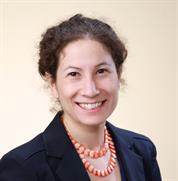On 12th July, RSA Japan Fellows’ Network hosted an afternoon session at the British Embassy in Tokyo, bringing together five homegrown Japanese social initiatives to discuss what inspired them to get started, how they gained traction and how they manage to keep going. Steve Martin FRSA, Director of Eat Creative, prompted the discussions with questions such as “What do you wish you had known when you were starting out?”, “Why do you do what you do?” and “What is needed beyond passion, to ensure a venture will survive?”.
Find out more about RSA Global
Topics discussed included the different types of legal structures available for social organisations in Japan, best practices for interaction with local and national government and getting the right balance between business and passion.
The answers were refreshing and energising and seemed to suggest a new breed of passionate pragmatists that can take Japanese social enterprise to the next level. Below is a selection of highlights from the discussion:
“A breakthrough for us was when we discovered the power of getting people involved. Instead of making the Geiger counters ourselves, we sold kits so that people could make their own.” (Pieter Franken, Safecast)
“You don’t learn if you don’t do.” (Pieter Franken, Safecast)
“I can’t vote in this country so my work is my way of voting.” (Charles McJilton FRSA, Second Harvest Japan)
“We don’t try to help people. We want to change the way things are done.” (Charles McJilton FRSA, Second Harvest Japan)
“Art is a way to connect with people across cultures. And it’s fun. I discovered its power when living abroad as a child and now I want to share it with others.” Shuku Ebihara, Kuriya
“I do this because litter is a big problem. I like big problems. They make me a big hero!” (Fujio Kojima, Pirika)
“A lot of social ventures get stuck in a bad cycle. Our job is to help them break out of this cycle and transition into a good cycle.” (Kenji Hosokawa, Social Venture Partners Tokyo)
Feedback from the event was very positive with participants citing the informal structure, opportunity for in-depth discussion on ‘real-world’ issues that really matter to the success of social ventures and the wide variety of guests from all areas of Japan’s non-profit sector.
There was a lot of interest in a follow-up session – we are working on this now.

Background to the speakers’ organisations:
Safecast Set up in the aftermath of the 3/11 earthquake and tsunami, Safecast’s remit is to collect environmental data and make it available for everyone (‘Open environmental data for everyone’). They have built up a large data set of radiation levels through a open source process of collection (buy and build your own Geiger counter from their site) and are now working on an air pollution measurement project. Their network has grown beyond Japan sporting many collaborations with citizens, universities, NGOs and companies across the globe.
Pirika A young startup set up to “Solve environmental problems with the power of science and technology”. With an initial focus on litter, they have so far developed an ‘anti-litter smartphone app’ and a litter research and analysis programme – ‘Takanome’.
Kuriya/Shinjuku Art Project runs workshops that “empower participants to feel the positive aspects of being different”. Their focus is the promotion of a more diverse society to provide Japan with more potential in the future. Be it national and ethnic background, ability or sexual orientation SAP believe that having a broad range of people with diverse points of view and skills working together is a much more powerful approach to solving issues.
Second Harvest Japan has been pioneering food banking in Japan since 2002. It works to make sure people have enough food in Japan by matching surplus food with those in need as well as welfare institutions, faith-based groups and other nonprofits. Over 940 companies have donated food since 2002.
Social Venture Partners Tokyo: a network of engaged philanthropists (Partners) that aims to accelerate social entrepreneurship in Japan. Part of an international network, SVPT support and advise Pirika.
Related articles
-
Beyond borders: the world after Covid-19
Adanna Shallowe
Adanna Shallowe imagines the world ten years on from the Covid-19 global pandemic. How has the global community responded?
-
Building global connections in times of coronavirus
Divya Marie Kato
In early April, the very first RSA Virtual Coffeehouse travelled all the way to Japan. Tokyo-based artist Divya Marie Kato, who facilitated the event, shares her thoughts about this global conversation.
-
Does the global response to coronavirus suggest we can confront climate change?
Anthony Painter
What can we learn from the coronavirus pandemic about the conditions that we'll need to tackle the climate emergency?




Be the first to write a comment
Comments
Please login to post a comment or reply
Don't have an account? Click here to register.